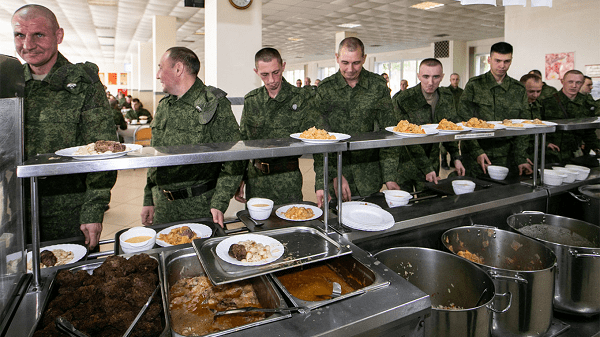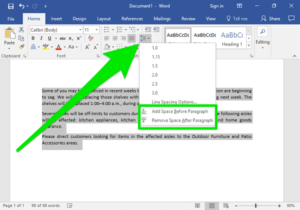Armed forces catering hospitals- Armed forces often have their own dedicated medical facilities, including hospitals, to provide healthcare services to their personnel. These hospitals are commonly referred to as “military hospitals” or “military medical centers.” These facilities are staffed by military healthcare professionals, such as doctors, nurses, and other medical staff who are part of the armed forces.
Catering in military hospitals involves providing food services to patients, staff, and visitors. Military hospitals typically have food service departments responsible for preparing and serving meals to meet the dietary and nutritional needs of patients and staff. These food service departments operate similarly to those in civilian hospitals and may include the following components:
- Meal Planning: Dietitians and nutritionists work to create meal plans that meet the dietary requirements of patients and align with medical recommendations.
- Food Preparation: Professional chefs and kitchen staff prepare meals in accordance with the specified dietary requirements. Meals may need to be modified for patients with specific dietary restrictions or medical conditions.
- Food Service: Military hospitals have dining facilities or cafeterias that provide meals to staff and visitors. Additionally, meals are delivered to patients in their rooms, and this often includes special considerations for patients with dietary restrictions or medical needs.
- Nutrition Support: In cases where patients require specialized nutrition support, such as enteral or parenteral feeding, the hospital’s food service department plays a crucial role in administering these treatments.
- Hygiene and Safety: Maintaining high standards of hygiene and food safety is essential in military hospitals to prevent foodborne illnesses and ensure the well-being of patients.
Catering in military hospitals is a critical function as proper nutrition is an integral part of the healthcare process. Meeting the dietary needs of patients and providing nutritious meals can aid in their recovery and overall well-being.
What I will learn with Armed forces catering hospitals
If you are interested in learning about catering services in the context of military hospitals or healthcare facilities associated with the armed forces, you can expect to gain knowledge in several areas:
- Food Safety and Hygiene: You will learn about the importance of maintaining high standards of food safety and hygiene to prevent foodborne illnesses, particularly in a healthcare setting.
- Dietary Planning: Understanding how to plan and prepare meals that meet the dietary and nutritional needs of patients with various medical conditions, dietary restrictions, or cultural preferences.
- Meal Preparation: Knowledge of how to prepare and modify meals to ensure they are nutritious, well-balanced, and safe for consumption.
- Patient-Centered Care: Catering in military hospitals is often patient-centered, focusing on providing meals that support patient recovery and well-being.
- Coordination: You will learn about the coordination required between healthcare professionals, dietitians, chefs, and kitchen staff to provide the right meals to patients.
- Food Service Operations: Understanding the logistical aspects of food service in military hospitals, including cafeteria operations and meal delivery to patients.
- Adaptability: The ability to adapt to the unique needs and challenges of catering in a military healthcare environment, which may include caring for patients with combat-related injuries or illnesses.
- Military Health Policies: Knowledge of the specific health policies and guidelines that pertain to military healthcare, including dietary regulations for service members.
- Cultural Competence: Sensitivity to the diverse dietary needs of a military population, which may include personnel from various cultural backgrounds.
- Teamwork: The importance of effective teamwork in providing catering services that align with the overall healthcare goals of the military hospital.
Keep in mind that the specific curriculum or training for catering in military hospitals may vary depending on the country, military branch, and the specific roles and responsibilities of the individuals involved. If you are pursuing a career in this field or looking for educational opportunities, it’s advisable to consult with relevant military healthcare or culinary programs for specific details on their coursework and training programs.
Types of Armed forces catering hospitals

Catering services in armed forces hospitals can vary based on the specific needs and requirements of the military, the type of facility, and the location. Here are some general types or categories of armed forces catering hospitals:
- Military General Hospitals: These hospitals provide a wide range of medical services, including catering. They cater to active-duty military personnel, their dependents, and retirees. The catering services in military general hospitals may be similar to those found in civilian hospitals.
- Veterans Affairs (VA) Hospitals: VA hospitals cater to veterans and offer a range of healthcare services, including catering. These facilities may have specialized dietary services to address the unique needs of veterans.
- Combat Support Hospitals (CSH): In deployed or combat zones, military forces may have CSH units that provide immediate medical care to wounded service members. Catering in CSHs is typically focused on providing essential nutrition to injured personnel during emergency medical operations.
- Field Hospitals: Field hospitals are set up during military operations and may provide basic catering services to ensure that injured service members receive nourishment during the initial stages of medical care.
- Naval Hospitals: The U.S. Navy operates its own hospitals, and catering services in these facilities cater to the needs of Navy personnel and, in some cases, their families.
- Air Force Hospitals: The U.S. Air Force also operates its own medical facilities, and catering services in these hospitals are designed to meet the dietary needs of Air Force personnel.
- Specialized Medical Facilities: Some military hospitals are specialized, focusing on particular medical services, such as orthopedics, rehabilitation, or mental health. These facilities may have catering services tailored to the specific needs of the patients they serve.
- Rehabilitation Hospitals: Some military hospitals are dedicated to providing rehabilitation services to injured service members. Catering in these facilities may focus on nutritional support for rehabilitation and recovery.
- Military Medical Training Centers: These centers may provide medical training and education to military personnel, and they may have catering services for both students and staff.
- Military Medical Research Facilities: Certain military facilities focus on medical research and development, and they may have catering services for their personnel.
It’s important to note that the specific types and categories of armed forces catering hospitals can vary from one country to another and may evolve over time based on the needs and priorities of the military. Additionally, the level of catering services may differ depending on the location, size, and purpose of the hospital or medical facility.
Application of Armed forces catering hospitals
The application of catering services in armed forces hospitals is crucial for supporting the healthcare and well-being of military personnel and their families. Here are some key applications of catering services in armed forces hospitals:
- Nutritional Support: Catering services play a vital role in providing patients with well-balanced and nutritious meals. Proper nutrition is essential for the recovery and overall health of patients, especially those with injuries, illnesses, or chronic conditions.
- Dietary Adaptation: Military hospitals often cater to a diverse population with varying dietary needs and restrictions. Catering services must adapt menus to accommodate patients with specific medical conditions, cultural preferences, or religious dietary requirements.
- Specialized Diets: Some patients in armed forces hospitals may require specialized diets, such as low-sodium, diabetic, or gluten-free options. Catering services must have the capacity to prepare and deliver these meals as needed.
- Efficient Meal Delivery: Catering services should ensure that meals are delivered promptly to patients’ rooms, taking into account any dietary restrictions. Timely meal delivery is crucial for the overall healthcare process and patient satisfaction.
- Meal Planning with Nutritionists: Collaboration with registered dietitians and nutritionists is common in armed forces hospitals. Catering services work closely with these experts to create dietary plans that align with the medical needs of patients.
- Food Safety and Hygiene: Catering services in military hospitals must adhere to strict food safety and hygiene standards to prevent foodborne illnesses and protect the health of patients and staff.
- Patient and Staff Satisfaction: The quality and variety of meals significantly impact patient and staff satisfaction. Well-prepared and appetizing food can enhance the overall healthcare experience.
- Training and Skill Development: Staff in catering services may receive training in culinary skills, food safety, and nutritional knowledge to ensure they can meet the unique needs of the military healthcare environment.
- Efficiency and Cost-Effectiveness: Efficient meal preparation and delivery processes are essential to minimize waste and control costs. This efficiency ensures that resources are used effectively.
- Compliance with Regulations: Catering services must adhere to regulations and guidelines related to food preparation and delivery within healthcare settings. Compliance ensures the safety and quality of food.
- Collaboration with Local Resources: Some military hospitals may collaborate with local food suppliers and farms to source fresh, locally produced ingredients for meals.
- Supporting Military Operations: In deployed or combat zones, field hospitals and combat support hospitals must provide catering services to injured service members. These services may focus on providing essential nutrition during emergency medical operations.
In summary, catering services in armed forces hospitals serve a critical role in providing patients and staff with nutritious, safe, and culturally appropriate meals. These services must be adaptable to the unique dietary needs of the military population and adhere to strict standards of food safety and hygiene to support the overall healthcare mission of military healthcare facilities.
Case Study on Armed forces catering hospitals
Title: Enhancing Catering Services in a Military General Hospital
Introduction: In this case study, we will explore the challenges and opportunities faced by a military general hospital seeking to improve its catering services to better serve the needs of its diverse patient population, including active-duty military personnel, their dependents, and retirees.
Background: The “Greenfield Military Hospital” is a medium-sized general hospital that provides a wide range of medical services to military personnel and their families. The hospital operates a cafeteria and delivers meals to patients’ rooms. While they have been providing basic catering services, hospital administration recognizes the need for improvement.
Challenges:
- Diverse Dietary Needs: Greenfield Hospital serves a diverse population with varying dietary requirements due to medical conditions, cultural preferences, and age differences.
- Quality and Nutrition: There is a need to ensure that meals are not only nutritious but also meet the specific dietary needs of patients, especially those with chronic illnesses.
- Efficiency: Hospital staff has noted that catering operations need streamlining to improve efficiency and reduce waste.
- Patient Satisfaction: A patient satisfaction survey has indicated that catering services are an area for potential improvement. Some patients have expressed dissatisfaction with the quality and variety of meals.
Solution: The hospital administration decides to take a systematic approach to address these challenges:
- Dietary Planning: Collaborate with registered dietitians and nutritionists to create a comprehensive dietary plan that considers the diverse needs of patients. Develop specialized menus for patients with specific dietary restrictions or conditions.
- Meal Preparation: Enhance the kitchen facilities and staff training to ensure that meals are prepared with care, taking into account the nutritional requirements and preferences of patients. Incorporate fresh, locally sourced ingredients.
- Streamlining Operations: Implement more efficient meal order and delivery systems. Invest in technology to track patient dietary preferences and streamline meal preparation.
- Quality Control: Regularly assess the quality and nutritional content of meals. Conduct taste tests and gather feedback from patients and staff to make continuous improvements.
- Menu Variety: Offer a wider variety of meals that cater to different cultural backgrounds and age groups. Consider seasonal menu changes and special offerings for holidays.
Results: After implementing these changes, Greenfield Military Hospital observed significant improvements in its catering services:
- Improved Patient Satisfaction: Patient surveys indicated higher levels of satisfaction with the quality, variety, and dietary appropriateness of meals.
- Enhanced Efficiency: Streamlined operations reduced waste and improved meal delivery times.
- Healthier Dining: Patients with specific dietary needs reported improved health outcomes due to better dietary planning.
- Staff Training: The kitchen staff received training in culinary skills, food safety, and nutrition, leading to better meal preparation and presentation.
In conclusion, the case study highlights the importance of continuously improving catering services in military hospitals to meet the diverse dietary needs of their patient populations. By adopting a systematic approach and collaborating with nutrition professionals, military hospitals can enhance the quality of their catering services and, in turn, contribute to the overall well-being of their patients.
White paper on Armed forces catering hospitals
Title: Enhancing Catering Services in Armed Forces Hospitals
Executive Summary:
- Provide a brief overview of the contents and key findings of the white paper.
Table of Contents:
- Introduction
- Background and importance of catering services in armed forces hospitals.
- Catering Services in Military Healthcare
- Explain the unique needs and challenges associated with catering in military healthcare facilities.
- Types of Armed Forces Catering Hospitals
- Explore the various types and categories of military hospitals and their respective catering services.
- Challenges and Opportunities
- Identify common challenges faced by catering services in military hospitals and the opportunities for improvement.
- Case Studies
- Present real-world case studies highlighting successful initiatives in armed forces catering hospitals.
- Best Practices
- Discuss best practices for enhancing catering services in military hospitals, including dietary planning, meal preparation, and quality control.
- Nutritional and Dietary Considerations
- Explain the importance of meeting diverse dietary requirements in military hospitals, especially for patients with specific medical conditions.
- Efficiency and Technology
- Explore strategies for improving efficiency in meal ordering, preparation, and delivery through technology and streamlined operations.
- Patient and Staff Satisfaction
- Discuss the significance of patient and staff satisfaction in evaluating the quality of catering services.
- Training and Skill Development
- Highlight the role of staff training in improving culinary skills, food safety practices, and nutritional knowledge.
- Collaboration and Partnerships
- Emphasize the benefits of collaboration with nutritionists, dietitians, and culinary experts in enhancing catering services.
- Health Outcomes
- Analyze the impact of improved catering services on the health outcomes of patients.
- Regulations and Compliance
- Discuss the regulatory framework governing food service operations in military hospitals.
- Future Trends and Innovations
- Explore emerging trends, technologies, and innovations in armed forces catering hospitals.
- Conclusion
- Summarize the key takeaways and emphasize the importance of ongoing improvement in catering services for the armed forces.
- Recommendations
- Provide actionable recommendations for military hospitals to enhance their catering services.
- References
- Cite all sources and references used throughout the white paper.
Conclusion:
- Recap the main findings and the importance of providing high-quality catering services in armed forces hospitals.
Recommendations:
- Offer specific recommendations for military hospitals to improve their catering services, which may include collaboration with nutrition experts, adopting technological solutions, and prioritizing patient and staff satisfaction.
Appendices (if necessary):
- Include additional data, charts, or resources that support the content of the white paper.
This white paper outline provides a structured framework for addressing the topic of “Armed Forces Catering Hospitals.” Researchers and experts in the field can use this outline as a basis for conducting further research, collecting data, and developing a comprehensive document that explores the challenges, best practices, and opportunities in catering services within military healthcare settings.





